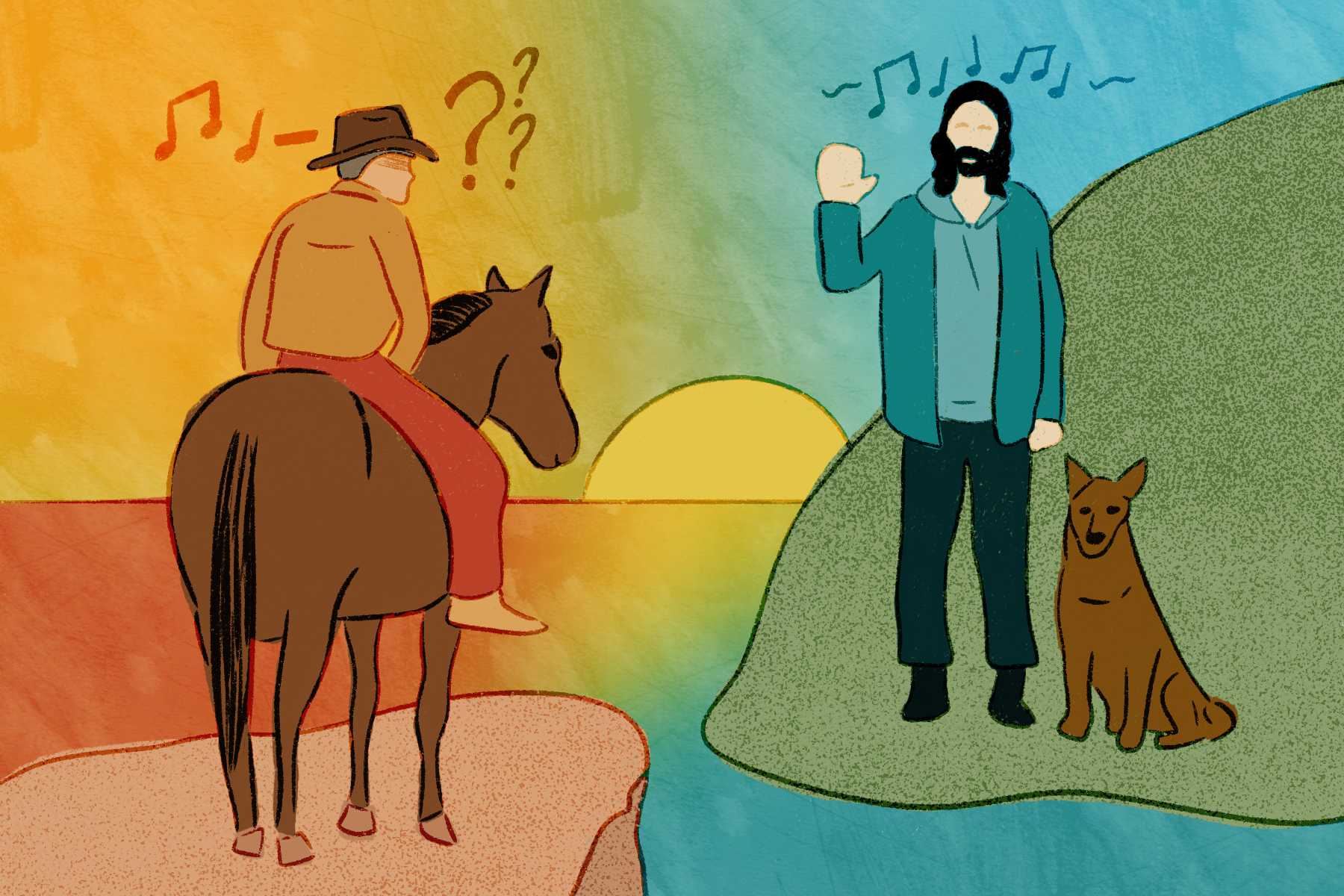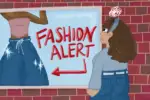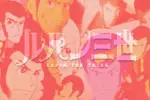Noah Kahan is among the nominees for “Best New Artist” at the 2024 Grammy Awards, with his music bearing similarities to artists Zach Bryan and Morgan Wallen, nominated for “Best Country Song” and “Best Country Album.”
On Dec. 2, I tuned into “Saturday Night Live” where Noah Kahan served as the musical guest. I was expecting my mom, who I was watching with, to be unfamiliar with the artist and dismiss them since they didn’t belong to the pop or country genres. Although unaware of his name and appearance, the voice was familiar to my mom. As a result of the Apple Music recommended shuffle, she’d heard Noah Kahan’s “Dial Drunk” amongst songs from country favorites such as Zach Bryan and Morgan Wallen.
https://www.youtube.com/watch?v=fBnJpw4wrgE
Based on how she’d heard of the song and my mother’s love of country music, the country label shouldn’t have been a surprise, yet it was. Kahan’s music was often classified as a mix of alternative, pop, and folk in my previous experiences with him. I hadn’t yet seen his name associated with the country music genre.
Although not admittedly a fan of the genre myself, country music has an undeniable quality that makes it recognizable to even the most apathetic listeners. One does not need to know the foundations or tenets of country music to perceive it when heard. These foundations and tenets can include instrumentation with banjos and guitars and topics relating to copious amounts of alcohol use, heartbreak, and imagery of the outdoors. Kahan and the supporting instrumentalists used guitars and banjos for the live performance on “SNL”. “Dial Drunk” is a song about a singer who ends up in jail because of alcohol use.
If “Dial Drunk” was sung by country singers Wallen or Bryan, I wouldn’t question the genre of the song. Without hesitation, it’d fall under the genre of country. “Dial Drunk” isn’t the only song the question “what makes country music the genre we know it as today” has been applied to. One can see it reflected through the Billboard Charts rankings.
In 2023, Luke Combs’ cover of “Fast Car” spent eight weeks at number 2 on the Billboard Top 100s chart. The original in comparison reached a peak of number 6 when it was initially released back in 1988. The original artist, Tracy Chapman, is a singer-songwriter and the song was classified as such, yet when Combs covered it, it became country. Combs’ cover doesn’t deconstruct the pacing of the song. There’s no lyrical or major melody changes. Like Chapman’s version, the main instrumentation of “Fast Car” remains a guitar. The only difference besides Combs’ voice is its classification as a country cover, which poses a question: what even makes country music “country”?
Is it instrumentation? The lyrics? The person singing it?
In the case of Kahan, his album “Stick Season (We’ll All Be Here Forever”) is classified as an alternative album by Apple Music.
https://open.spotify.com/album/1pb3je8gXTs5dpRRTKhHRC?si=1Y15S4rXRzOQsZ9ZswJGqA
Despite the “alternative” classification, Kahan’s song “Dial Drunk” still sounded country. The lyrical message of the song revolves around Kahan singing about drinking a sizable amount of alcohol leading to an interaction with police where an implied ex-lover rejects his drunk dial.
In comparison with country singer Morgan Wallen’s “One Time at a Time”, a song about a man with drinking habits going through tension in his relationship, there are noticeable similarities. These similarities grow when taking a closer look at the lyrics.
https://www.youtube.com/watch?v=S-OKqDu8YmA
“Dial Drunk” tells the story of a drunk singer still hung up on his ex as Kahan sings, “rememberin’ I promised to forget you now” and “I’m callin’ drunk.” Wallen’s “One Thing at a Time” quickly refers to alcohol within its first verse with lyrics of “somebody pour me a double shot” and “tonight I drink.”
Kahan’s next line “my medicine is drownin’ your perspective out” sounds similar to Wallen’s chorus promise “I can give you up right now and never want you back as long as I’m half-stoned,” showing the use of substances in coping with the loss of a lover by both artists.
Both songs also highlight self destructive tendencies in their choruses. Where Wallen sings in “One Thing at a Time” that [he] “can either burn the bar down or I can take your number out of my phone,” Kahan’s “Dial Drunk” reflects that [he] “ain’t proud of all the punches that I’ve thrown.”
In looking at similarities to country music from a wider lens, Kahan also briefly appeals to country music’s fixation on American nationalism. The singer promises to “change my faith, I’ll praise the flag” if the police officer waits for the ex-lover to call back.
Something about singing an ode to the American flag felt distinctively country. The popular patriotic Fourth of July anthem, “God Bless the U.S.A. (Proud to be an American)” was written by a country singer after all. Johnny Cash, a famous country singer of the 20th century, also wrote patriotic anthems. An example of this is his song “Ragged Old Flag” which has lyrics describing what led to the current appearance of the flag through historical allusions to “when Washington took it down the Delaware” and “it almost fell down at the Alamo” and ending on the sentiment that Cash is “mighty proud of that Ragged Old Flag.” Brad Paisley invoked the flag on his 2014 song “American Flag on the Moon.” The flag isn’t only symbolic in its ties to America, but also as Paisley indicates through his lyrics its proof of achieving possible things. In the song, Paisley sings “when anyone says there’s anything we can’t do, after all, I mean, there’s an American flag on the moon”.
The “praise the flag” line in “Dial Drunk” is even repeated again with a slight change: “I’ll change my faith, I’ll kiss the badge”. It swaps out American nationalism for affinity towards the police. Cops and police are mentioned frequently in “Dial Drunk” with lines like “even the cops thought you were wrong for hangin’ up.” Although not as evident and pervasive as American nationalism in the genre, the affinity towards the police also felt distinctly country.
While “Ragged Old Flag” and “God Bless the U.S.A” sing of the armed forces, other country songs such as “The Weight of the Badge”, sung by country singer George Strait, extend positive affinity towards local police. Strait sings regarding the police with reverence on the song through lyrics of “Lord knows it’s no easy task, keeping us safe under the weight of the badge” and “he swore that oath to protect and serve, pour his heart and soul into both of those words”.
The album “Stick Season (We’ll Be Here Forever)” is arguably Kahan’s breakthrough album, earning him a “Best New Artist” Grammy nomination. However, it is not his first album. Kahan’s 2018 single “False Confidence” echoes many of the internalized self doubt found in lyrics of songs on “Stick Season (We’ll Be Here Forever).” However, it isn’t as explicit with mentions of alcohol nor does it put itself in a locational context either.
In theory, the differences might be jarring, but in practice, they support an evolution in Kahan’s music. It is clear to see through the instrumentation and lyrics, the presence of influences such as country and folk. These influences that add attention to American patriotism or a culture of self-destructive drinking leading to interactions with the police give Kahan’s music a depth, richness, and authenticity it wouldn’t have had otherwise. These influences can help people relate and enjoy Kahan’s music, and if it means that “Dial Drunk” is considered country or country inspired, the end product is worth any wariness I feel towards the associations.

















